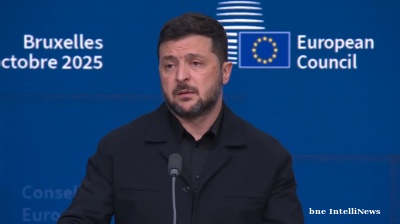Ecuador and the United States are negotiating an unprecedented immigration agreement that would allow the South American nation to host deported migrants from third countries, coinciding with Secretary of State Marco Rubio's visit to Quito this week.
Foreign Minister Gabriela Sommerfeld confirmed that Washington has requested Ecuador accept a small group of migrants as refugees, though she stipulated that the programme would differ significantly from El Salvador's current arrangement, which includes receiving criminal deportees.
"It will be a limited program that only addresses refugees of certain nationalities who have no criminal record and who meet certain criteria, such as good health," Sommerfeld stated. The proposed framework includes strict parameters: maximum admission of 300 people annually, selection limited to unspecified nationalities, exclusion of individuals with criminal records, and health requirements.
Sommerfeld also said that “there is a possibility” Washington could establish a military base on Ecuadorian territory.
“It doesn’t necessarily have to be a base for military purposes, but rather a base for different types of cooperation,” she said. Ecuador hosted US forces at the Manta air force base from the late 1990s until 2009, when former leftist president Rafael Correa cancelled the deal after coming to power.
Presidential spokesperson Carolina Jaramillo clarified that discussions remain ongoing with no final decision reached, describing it as a mutual agreement rather than a US imposition.
Rubio's arrival in Quito will address three key bilateral issues: security cooperation against organised crime and drug trafficking, irregular migration management, and economic development opportunities. Ecuador also plans to discuss the 15% tariffs imposed by the Trump administration that continue to affect its exports.
If finalised, the deal would mark a major shift in Ecuador's immigration policy under centre-right President Noboa, who was re-elected for a four-year term in April on promises to tackle security challenges and pursue stronger US ties. The arrangement could prove politically sensitive, however, given public concerns about Ecuador's capacity to manage additional migration pressures amid its own economic difficulties.
News
Category 5 hurricane Melissa bears down on Jamaica with Haiti and Cuba in storm's path
A catastrophic Category 5 hurricane was bearing down on Jamaica on Monday, October 27 afternoon with sustained winds of up to 282kph (175mph), threatening to become the strongest storm the Caribbean island has ever experienced.
.jpg)
US senator tells Maduro "head to Russia or China" as warships close in on Venezuela
A senior US Republican senator has warned that Venezuelan President Nicolás Maduro's time in power is running out and suggested he leave the country, as military tensions in the Caribbean continue to escalate.

Milei celebrates resounding victory in Argentina's midterm elections
Argentine President Javier Milei scored a major win for his La Libertad Avanza (LLA) party in Argentina's October 26 midterm legislative elections, as the party obtained approximately 40.84% of the nationwide vote with 99.14% of the votes counted.

Zelenskiy accuses China of aiding Russia’s war effort through industrial and military support
Ukrainian President Volodymyr Zelenskiy accused China of materially supporting Russia’s military-industrial complex, providing key technologies and resources that have enabled Moscow to sustain and scale its war effort against Ukraine.


_1761305900.jpg)

_1759927176.jpg)